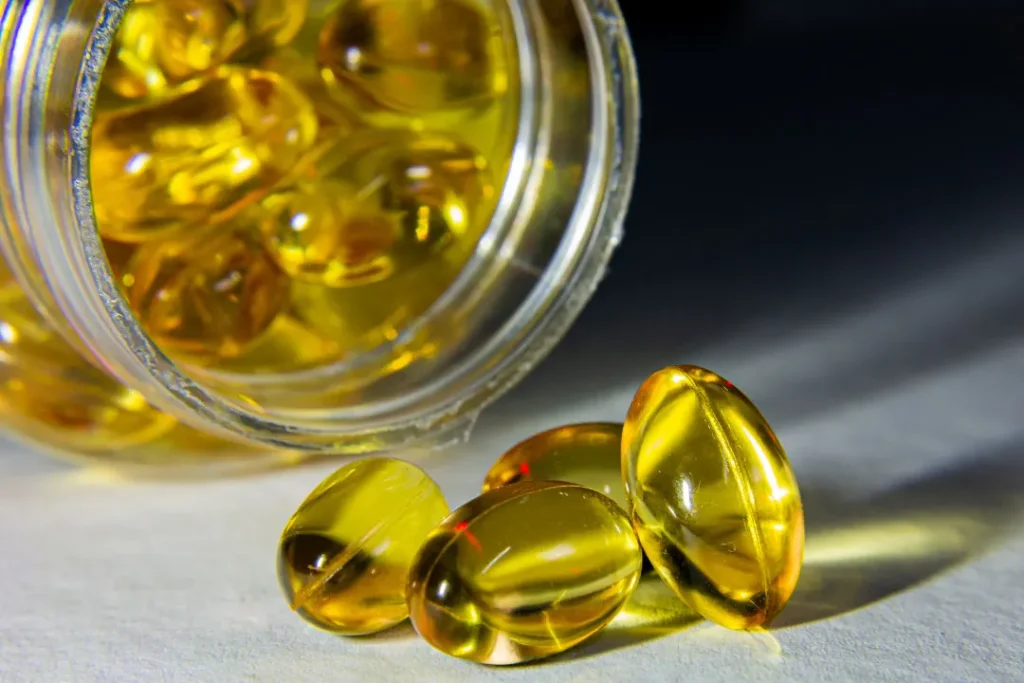The Zizyphus genus comprises around 40 species of deciduous and evergreen shrubs and trees that fall under the family Rhamnaceae. The Zizyphus genus has been utilized for its nutritional and medicinal properties for several millennia. Zizyphus jujuba (common jujube) and Zizyphus spinosa (wild jujube or sour jujube) are two of the most extensively recognized species, known for their high concentration of bioactive compounds. The present study offers a thorough examination of the chemical composition of Zizyphus, its associated health advantages, recommended dosage, adverse effects, plausible substance interactions, and conscientious utilization as a dietary supplement.
You May Also Like:
5 Great Supplement Ingredients to Include In Your Nootropic Stack
Nature of Zizyphus
Astonishingly, the Zizyphus genus includes a wide variety of deciduous and evergreen shrubs and trees that are found in warm-temperate and subtropical regions all over the world. These plants have beautiful small flowers that come in greenish-yellow color. They also have unique fruits of different sizes, shapes, and flavors depending on the species. Zizyphus has been used for thousands of years in traditional medicine systems, such as Traditional Chinese Medicine (TCM) and Ayurveda, for its many nutritional and therapeutic benefits.

Health Benefits of Zizyphus
Zizyphus is a great source of bioactive compounds that offer various health benefits. It’s great to know that there are many well-documented health benefits to look forward to:
- Zizyphus has traditionally been used as a sleep promoter and an agent for reducing anxiety. The flavonoid content of this substance, particularly spinosin and 6″-feruloylspinosin, are known to promote sleep. These compounds have shown the potential to positively impact the gamma-aminobutyric acid (GABA) neurotransmitter system, which plays a crucial role in regulating sleep and anxiety.
- Zizyphus contains flavonoids and triterpenoids that have powerful antioxidant and anti-inflammatory effects. These compounds have the potential to protect against oxidative stress-related diseases such as cardiovascular disease and neurodegenerative disorders by scavenging free radicals and inhibiting the production of pro-inflammatory cytokines.
- Zizyphus polysaccharides have been found to have immunomodulatory effects, which can potentially stimulate macrophage activation, enhance phagocytic activity, and promote the production of cytokines. The immunomodulatory effects of Zizyphus can likely enhance overall health and well-being.


Physiological Mechanism of Action of Zizyphus
Zizyphus is an amazing plant that offers a wide range of health benefits due to its diverse array of bioactive compounds. These compounds work together to provide various physiological effects on the body and brain, making Zizyphus a great addition to your diet. Here are several primary mechanisms of action to provide a more in-depth explanation of the health benefits of zizyphus:
- The modulation of GABAergic neurotransmission is a promising area of research with high potential for beneficial and exciting discoveries. Zizyphus contains flavonoids such as spinosin and 6″-feruloylspinosin, which are known to promote sleep and reduce anxiety. These compounds have been shown to have a positive effect on GABAergic neurotransmission by increasing the availability of GABA and modulating GABA receptor function. GABA is a crucial neurotransmitter in the central nervous system that plays a vital role in regulating neuronal excitability, sleep, and anxiety.
- As aforementioned, Zizyphus contains flavonoids and triterpenoids that have strong antioxidant properties. These can help to reduce oxidative stress by neutralizing free radicals. These compounds have the potential to prevent the onset and progression of various oxidative stress-related diseases, such as cardiovascular disease, neurodegenerative disorders, and certain types of cancer, by protecting cellular structures from oxidative damage.
- Examples of triterpenoids contained by Zizyphus include betulinic acid, oleanolic acid, and ursolic acid which have been found to have anti-inflammatory properties. They work by reducing the production of pro-inflammatory cytokines and regulating the activity of important inflammatory signaling pathways like nuclear factor-kappa B (NF-κB) and mitogen-activated protein kinase (MAPK). The anti-inflammatory actions of Zizyphus are likely to have a positive impact on overall health and wellness.
- Zizyphus contains polysaccharides that can help modulate immune function by stimulating macrophage activation, enhancing phagocytic activity, and promoting the production of cytokines. This can potentially lead to a stronger immune system. These immunomodulatory effects can potentially strengthen the body’s ability to fight off infections and other immune challenges.


Chemistry of Zizyphus
As previously stated, Zizyphus species contain a wide range of bioactive constituents, including flavonoids, triterpenoids, polysaccharides, alkaloids, and saponins. Among these bioactive compounds, flavonoids and triterpenoids are the primary compounds that are responsible for Zizyphus’s therapeutic properties.
- Flavonoids: Flavonoids are a class of plant secondary metabolites that exhibit antioxidant, anti-inflammatory, and anticancer properties. Zizyphus species are rich in flavonoids such as quercetin, kaempferol, and their glycosides, which have numerous potential health benefits. These flavonoids are great for promoting cellular health and preventing disease by demonstrating antioxidant activity through scavenging free radicals and reducing oxidative stress.
- Triterpenoids are an exciting class of organic compounds with multiple ring structures that are derived from the cyclization of squalene. Zizyphus species are rich in triterpenoids, including betulinic acid, oleanolic acid, and ursolic acid. These compounds have a diverse range of biological activities that include anti-inflammatory, antiviral, and anticancer properties.


Optimal Dosage of Zizyphus
There are many factors to consider when determining the optimal dosage of Zizyphus as a nutritional supplement, such as the specific species of Zizyphus, the extraction method used, and the individual’s age, health status, and medical history. However, with careful consideration and guidance from a healthcare professional, it is possible to find the right dosage that will provide the desired benefits. The following are some suggested dosage guidelines that can be taken into consideration.
- Zizyphus jujuba extract can be a great natural way to promote better sleep and reduce anxiety. A daily dose of 250-500 mg of standardized extract, containing at least 2% total flavonoids, is commonly recommended. It’s great to know that some clinical studies have used higher doses of up to 1,000 mg per day.
- Zizyphus spinosa extract is an amazing supplement that can provide you with antioxidant and anti-inflammatory benefits. It is recommended to take a daily dose of 100-200 mg of standardized extract, which contains at least 1% total triterpenoids. The dosage range can be adjusted to suit your individual needs better.
It’s great to know that there is already some clinical evidence to support the use of Zizyphus supplements for certain health conditions. With further research, we can determine the best dosage for an individual need to attain better health improvements. It will be good if you can consult with a healthcare professional before using Zizyphus supplements to ensure appropriate dosing and safety.


Side Effects of Zizyphus
Zizyphus is a safe and healthy food when consumed in moderation or as a supplement in the recommended doses. Although there may be some side effects, it’s important to remember that many individuals do not experience any negative symptoms. Additionally, these side effects are typically mild and temporary, and can often be managed with simple remedies. Mild symptoms tend to go away on their own without needing medical attention.
Although allergic reactions to Zizyphus have been reported in rare cases, most people can safely consume it without any adverse effects. People who do not have an allergy to Zizyphus or any of its constituents can safely consume it.
Potential Substance Interactions With Zizyphus
It’s important to note that while Zizyphus may interact with certain medications, this can be easily managed by consulting with a healthcare professional. By doing so, you can ensure that you are receiving the best possible treatment and minimizing any potential risks. The followings are some potential interactions of Zizyphus with other medications:
- Zizyphus has sedative and anxiolytic effects that can enhance the actions of benzodiazepines, barbiturates, and other CNS depressants. It’s always a good idea to consult with your healthcare provider before using Zizyphus if you are taking sedatives or anxiolytics. By doing so, you can ensure that you are using it safely and effectively.
- While taking Zizyphus along with anticoagulant or antiplatelet medications like warfarin, heparin, or aspirin, there may be a slight increase in the risk of bleeding. However, with proper monitoring and care, this can be managed effectively. It’s always a good idea to consult with your healthcare provider before using Zizyphus supplements, as they can provide valuable guidance on how to use them safely and effectively.
- Zizyphus has hypoglycemic effects that can potentially enhance the blood glucose-lowering effects of antidiabetic medications, which is a positive outcome. By monitoring their blood glucose levels closely and consulting their healthcare provider, individuals taking antidiabetic medications can safely use Zizyphus supplements.
Best Responsible Uses of Zizyphus
By adhering to the following guidelines, individuals can confidently and responsibly use Zizyphus as a nutritional supplement:
- It’s always a good idea to consult with a healthcare professional before using Zizyphus supplements, especially if you’re taking medications or have a pre-existing medical condition. This will help ensure that you’re taking the best possible care of your health.
- You can easily find high-quality and standardized Zizyphus supplements from reputable manufacturers with their bioactive constituents free from any contaminants.
- By following the recommended dosage guidelines and adjusting as needed based on individual needs and responses, you can optimize the effectiveness of the medication. Be aware of possible side effects or interactions with other substances, but don’t worry too much. If any adverse reactions occur, simply discontinue use and consult with a healthcare professional.
Zizyphus:
Conclusion
If you are looking for a supplement that can promote sleep and reduce stress efficiently, then, the Zizyphus supplement would be a superior choice. Zizyphus, also known as jujube contains a high concentration of bioactive compounds such as flavonoids and triterpenoids which have antioxidant and anti-inflammatory properties. These properties are efficient in preventing liver disease and improving overall health and well-being aside from stress-relieving and sleep-promoting.
However, it is pivotal to remember to seek advice from healthcare professionals to know the appropriate dosage and combination of Zizyphus that is suitable for you especially if you have any medical history. Thus, choose and pick the correct Zizyphus supplements from a reputable source and a trustable seller to obtain its best health benefits.
References:
- Chemical constituents and bioactivities of Zizyphus species. Retrieved from: https://www.ncbi.nlm.nih.gov/pmc/articles/PMC6273146/
- Sleep-promoting effects of Zizyphus jujuba fruit: A review of the literature. Retrieved from: https://www.hindawi.com/journals/ecam/2017/3019568/
- Antioxidant and anti-inflammatory activities of flavonoids from Zizyphus jujuba. Retrieved from: https://www.mdpi.com/1420-3049/17/9/10724
- Anxiolytic and sedative effects of Zizyphus spinosa seed extracts. Retrieved from: https://www.frontiersin.org/articles/10.3389/fphar.2019.00261/full
Important Note: The information contained in this article is for general informational purposes only, and should not be construed as health or medical advice, nor is it intended to diagnose, prevent, treat, or cure any disease or health condition. Before embarking on any diet, fitness regimen, or program of nutritional supplementation, it is advisable to consult your healthcare professional in order to determine its safety and probable efficacy in terms of your individual state of health.
Regarding Nutritional Supplements Or Other Non-Prescription Health Products: If any nutritional supplements or other non-prescription health products are mentioned in the foregoing article, any claims or statements made about them have not been evaluated by the U.S. Food and Drug Administration, and such nutritional supplements or other health products are not intended to diagnose, treat, cure, or prevent any disease.
